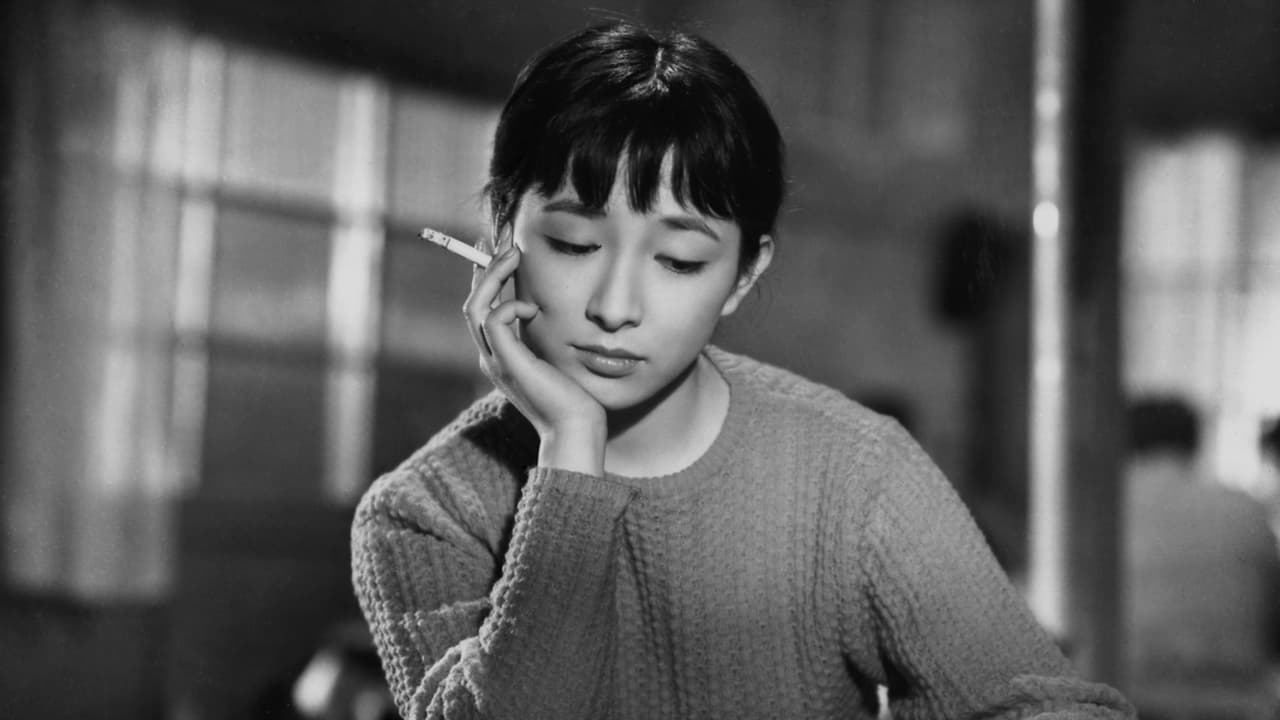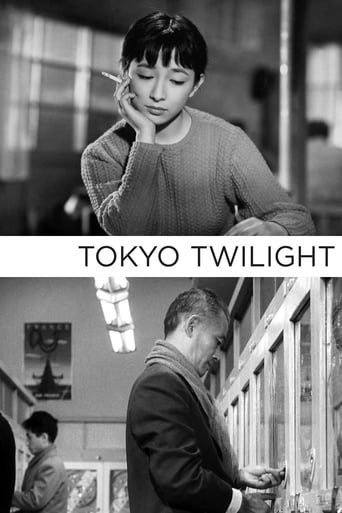


Surprisingly incoherent and boring
... View MoreStrictly average movie
... View MoreMasterful Movie
... View MoreIt's no definitive masterpiece but it's damn close.
... View MoreViewed on DVD. Restoration = ten (10) stars. Unlike most films from Yasujiro Ozu, here is a movie you have NOT mostly seen before you actually see it! This is mainly due to a plot that is uniquely divergent for this director (who is also a co-author of the script). It is a refreshing relief from the usual over-the-top depiction of tragedy in many/most dramatic films of the era. No over-blown emoting (except for the youngest lead actress), extensive distraught hand wringing or scenery eating. On the other hand, the serene depiction of an extended family confronting life-changing misfortunes is unrealistically presented as essentially a "business- as-usual," every-day occurrence. The lectern is disguised, but the viewer can not escape the nuanced feeling of being lectured by the Director on how financially well-off, contemporary Japanese families are supposed to confront and react to tragic events. This is a movie that projects the director's opinion of how Japanese society should be, not how Japanese society necessarily was in the mid 1950's. There is not much in the film that is new at the execution level. As usual, there are no surprises, since the script telegraphs all forthcoming events. Most of the director's filming techniques, trade-mark shots, and artifacts are the same as used ad nausea in other films (except for the absence of clothes lines and the frequent substitution of "side acting" for "back acting" this time). As usual, the film is much too long and dragged out. Pretty much the same (outstanding) leading actors/actresses are in residence. Studio sets have been recycled as usual: this family seems to live in the same house as all the other families seen in all the director's other films (complete with bell-ringing outside sliding doors). All establishing shots are at worm's eye level which usually cuts the actors off at mid torso. The schizophrenic film score is badly in need of a music editor to match music and themes with actors and scenes. Music ranges from rip-offs of contemporary Italian movies (especially during the opening credits) to very light-weight Wagner. To add to this sorry state, happy music often accomplices the depiction of somber screen moments. Cinematography (black and white) consists of static shots using graying filters for real exteriors and an antique, narrow-screen format. Subtitles are just right: they neither lag nor lead the clearly enunciated dialog delivery. So in the final analysis what do we have? A photo play that is definitely worth watching and watching in its entirety, although surviving repeat viewings may prove beyond challenging. WILLIAM FLANIGAN, PhD.
... View MoreThis is my fifth Ozu film. And as I watch more of his movies my respect for his genius keeps on growing. He is more avant-garde than any other film maker I have seen.While others use wars as backdrop to create a more touching drama, wars just find a small reference in his films even if his characters have lived through them. While other use death as a dramatic pivot for the whole movie, Ozu skips it altogether. People do die in his films, but they do it off screen. There are no famous last dialogs about life or last moments.But despite these things or maybe because of these things, his movies are more poignant and touching than any other I have seen. I don't really cry while watching his movies. Instead they leave me in a strange tranquil state of mind, wistfully smiling.Another thing to note is that while his movies reveal more about Japanese culture than any other movies I have seen, at the same time they are very universal.If you haven't seen any movie by Yasujiro Ozu, I recommend starting with Tokyo Story or Good Morning. This one seems much longer as it takes some time to start and is devoid of humor. This is not meant as a criticism, Tokyo Twilight is still an amazing experience. But I think an average viewer should start with something else.
... View MoreI regret to say this, but even the brilliant Ozu, even the mature Ozu, had off-days. Ozu created many masterpieces, but this film is far less. The disasters come so fast, their development is so thin, the characters are so weakly developed and the coincidence upon which the plot turns is so great that this movie falls way below Tokyo Story, Late Spring, Equinox Flower or An Autumn Afternoon. If this is a masterpiece, what are those films?All the disasters of this family are pushed onto the screen in too short a time -- the pregnancy, the abandonment by the mother, Setsuko's breakup with her own husband. The main weakness, I think, is the lack of development of the wife who deserted Ryu. Why did she leave? The coincidence that the daughter and her friends frequent a mah-jongg parlor which turns out to be owned by the long-gone mother -- coincidences like that happen in real life, but in movies they are much too convenient.Long live Ozu! But not "Tokyo Twilight."
... View MoreThis is a relatively "dark" film, symbolized by the cold weather outside throughout the film, and the various ways (wearing masks, sitting close to the fire, snuggling up) in which the characters cope with the cold.I cannot agree with the previous review's strictures about the leading male character, that he is paternalistic, passive, and judgmental. What came across to me was that he cared deeply for his children and accepted his responsibility as a parent to address their problems. He has been abandoned by his wife and the mother of his children, he says he has done the best he could to raise them, at the same time acknowledging the need for children to have two parents. The theme of parental responsibility seems a common element in this with the last Ozu film I saw: THERE WAS A FATHER.Although this is a rather "dark" film, the ending, like that of many of Shakespeare's plays, ends in some form of reconciliation: the one daughter wanting to start a new life, the other deciding to return, with her child, to her husband, from whom she has been separated.
... View More